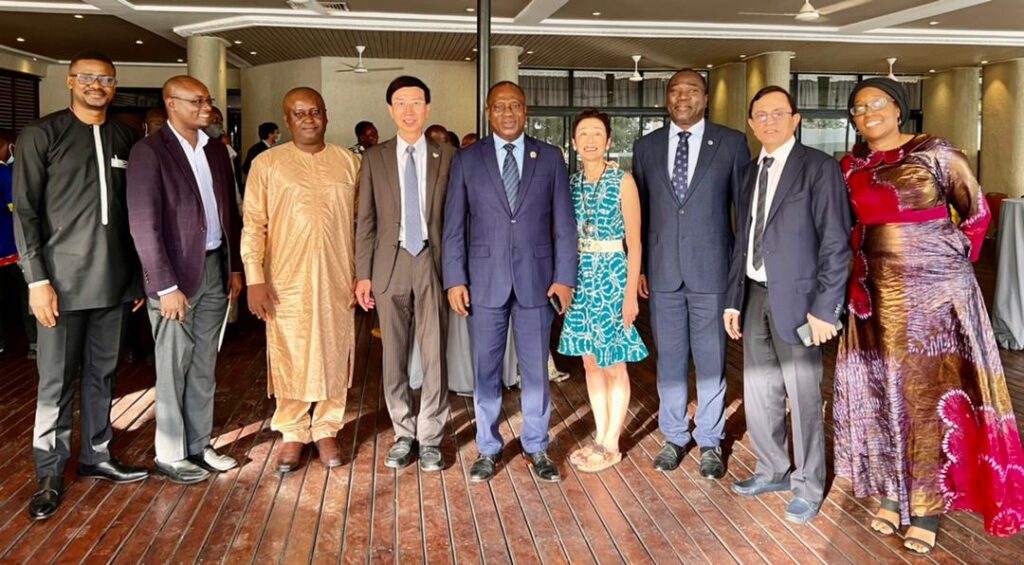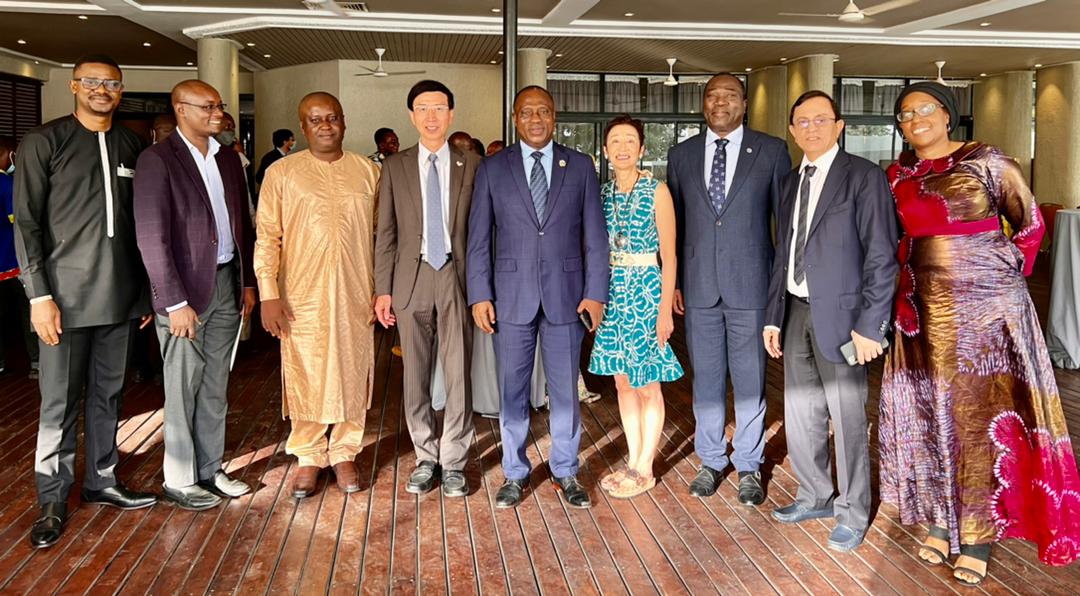Japanese achievements in Sierra Leone have been showcased by Ambassador Mochizuki Hisanobu, last Thursday, at Radisson Blu Hotel in Freetown. Mochizuki focused on his country’s valuable contribution to Sierra Leone for the past three years. The one-day conference was attended by heads and representatives of various UN agencies in the country as well as the Minister of Economic Planning and Development. Sierra Leone has enjoyed significant benefits from economic and technical cooperation from the Japanese government especially in times of crises. In partnership with the UN institutions, Japan has rolled out key projects geared towards the achievement of the Sustainable Development Goals (SDGs) signed by 193 countries of the UN.
Energy, agriculture, infrastructure, women empowerment, child protection, gender-based services were key sectors that got US$70m (Le70Trillion Leones) of Japanese funds, Muchozuki says.
These projects were in line with The SDGs. “The projects, implemented in several policy domains, are expected to complement national policies of Sierra Leone that seeks to make meaningful progress towards achieving Sustainable Development Goals,” he said.
The projects also bring to the fore how Japan has been contributing to human security which is about addressing livelihood problems and access to social services. “Japan’s own development effort is attributed to investments we have made over the years in human security-related programmes. That is why most of our ODA [Office of Diaspora] initiatives such as the projects we are showcasing today are to promote the concept of human security,”
When Corona hit the world in 2019, most of these projects were constrained. The Japanese ambassador said his country initiated projects that helped to increase access to health services by Sierra Leoneans during COVID-19 period. Agriculture and food security, a vital component of the country’s economy was also supported by Japan.
Mochizuki told journalists that those small-holder farmers were capacitated to produce more and initiatives introduced to reduce COVID-19 impact on the economy. The projects Sierra Leone had been benefitting, the ambassador said, came as a result of Sierra Leone’s long-standing, cordial relationship with Japan. Despite the positive results the Japanese projects are yielding in Sierra Leone, the ambassador assured Sierra Leoneans of more aid.

“…Japan will continue to focus international dialogue on Africa through mobilising the necessary support to implement projects towards promoting sustainable development,” the Japanese ambassador assured. The Ambassador appreciated the effort of Japanese staff who have utilised their expertise to make things happen. Sierra Leone’s private sector is also being exploited by the Japanese investors for the country’s benefit.
One of those investors present at the ceremony was Kantaro Iwabuchi who operates a 600-hectare of pineapple farm in Sumbuya town in the southern district of Bo. The farm which is an agro-based investment has created jobs for dozens of youth in that part of the country. Hope to have more hands on the farms remains high when it reached commercial production stage in the not-too-distant future.
“Sierra Leone has a great future in agriculture,” Iwabuchi pointed out. He made reference to Japanese innovators and investors particularly founders of Toyota and Panasonic companies from whom he borrowed a leaf. He said Taichi Ohno and Konosuke Matsushita founded Toyota and Panasonic companies respectively. “These companies have today made great impact not only in Japan but also in the world,” the Japanese investor said.
Iwabuchi strongly believes in investment and innovation which he says moves the world. Several participants who represented key agencies at the conference made presentations that testify Japanese contribution to Sierra Leone. One of the presenters was Dr Syrian Kamara, a long-term media practitioner who is now Executive Director of Planned Parenthood Association of Sierra Leone.
In her presentation, Dr Kamara laid emphasis on the tremendous interventions Japan has made to the improvement of sexual and reproductive health in Sierra Leone. Of particular importance in her address was the US$218.5m that benefited 6 million people.
UN Resident Coordinator in Sierra Leone Dr Babatunde Ahonsi greatly appreciated Japanese effort towards the development of Sierra Leone. He said Japan was a key contributor to the Global Human Security Trust Fund that supported the human security approach, a cornerstone of Japan’s development assistance strategy.
“This fund is currently supporting a Programme in Kono district. There are also plans for two more programmes in the country supported through this fund,” Dr Ahonsi emphasised. The programmes, he went on, were also designed to translate the human security approach into practical actions providing “concrete” and “sustainable benefit” to vulnerable communities in their survival, livelihood and dignity.
Dr Ahonsi went on to state that Japan’s support has helped the UN work in such critical areas as crisis response, school feeding and social cohesion within communities. Japan, he says, still remains a key funding partner of the UN Sustainable Development Cooperation Framework, the four-year joint development cooperation programme between the UN Country Team and Sierra Leone government.
Dr Ahonsi also commended Japan for supporting government to realise good gains in the SDGs. “Japan has demonstrated its commitment to the SDGs not only through domestic effort but also through development cooperation programmes with a range of countries including Sierra Leone,” The Resident Coordinator repeated for the Asian country. Japan’s effort, Dr Ahonsi says, indicates the true spirit of the 17th goal in the SDGs which talks about inter-sectoral partnerships for the realisation of the SDGs.
In his keynote address, Minister of Economic Planning and Development, Dr Francis Kaikai described Japan as one of Sierra Leone’s key development partners. He said the relationship between Sierra Leone and Japan dated back to 2004 when the latter supported the disarmament, demobilisation and reintegration programme at a time Sierra Leone was undergoing a transition from war to peace.
The minister made it clear that government is always keen on development adding that it welcomes and appreciates any private or public sector agency that work towards that direction.
Mr Kaikai singled out the Agro-based industrial development farm in Sumbuya as a worthy initiative and commended Iwabuchi for such an investment. “This is a very good investment for Sierra Leone and government looks forward to working with him [Iwabuchi] closely,” he assured. He emphasised that the private sector was very much critical to the country’s development.
Minister Kaikai also equally paid attention to government’s Mid-Term National Development Plan (MTDNP) 2019-2023, a policy that guides government on which areas to prioritise in the country’s development. He said Japanese investment in Sierra Leone fell squarely within government’s national development plan.


